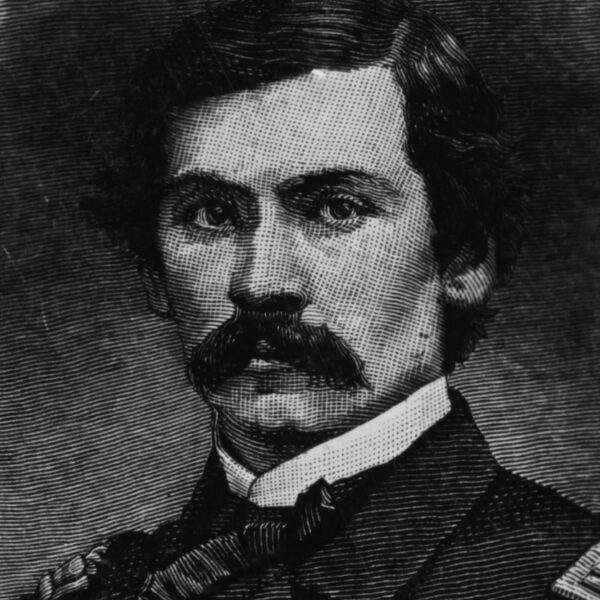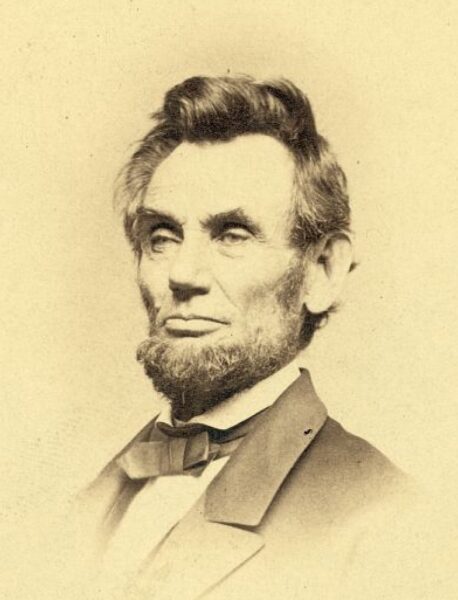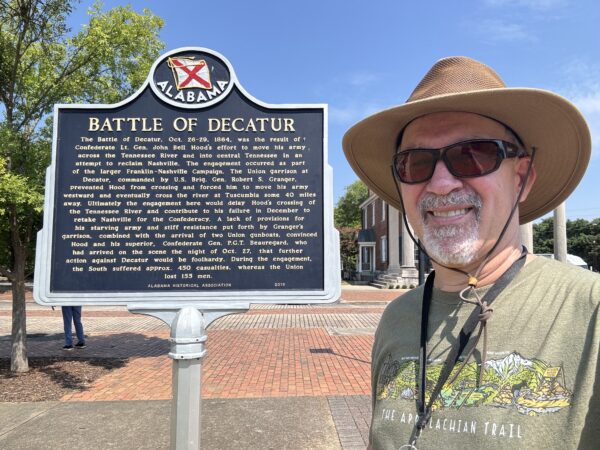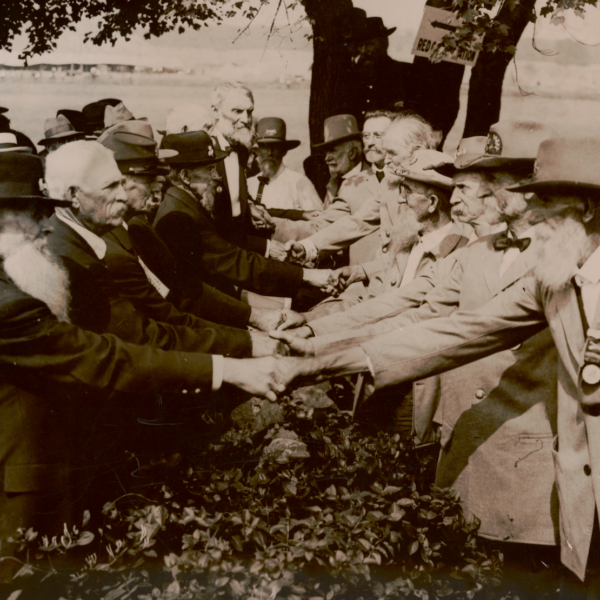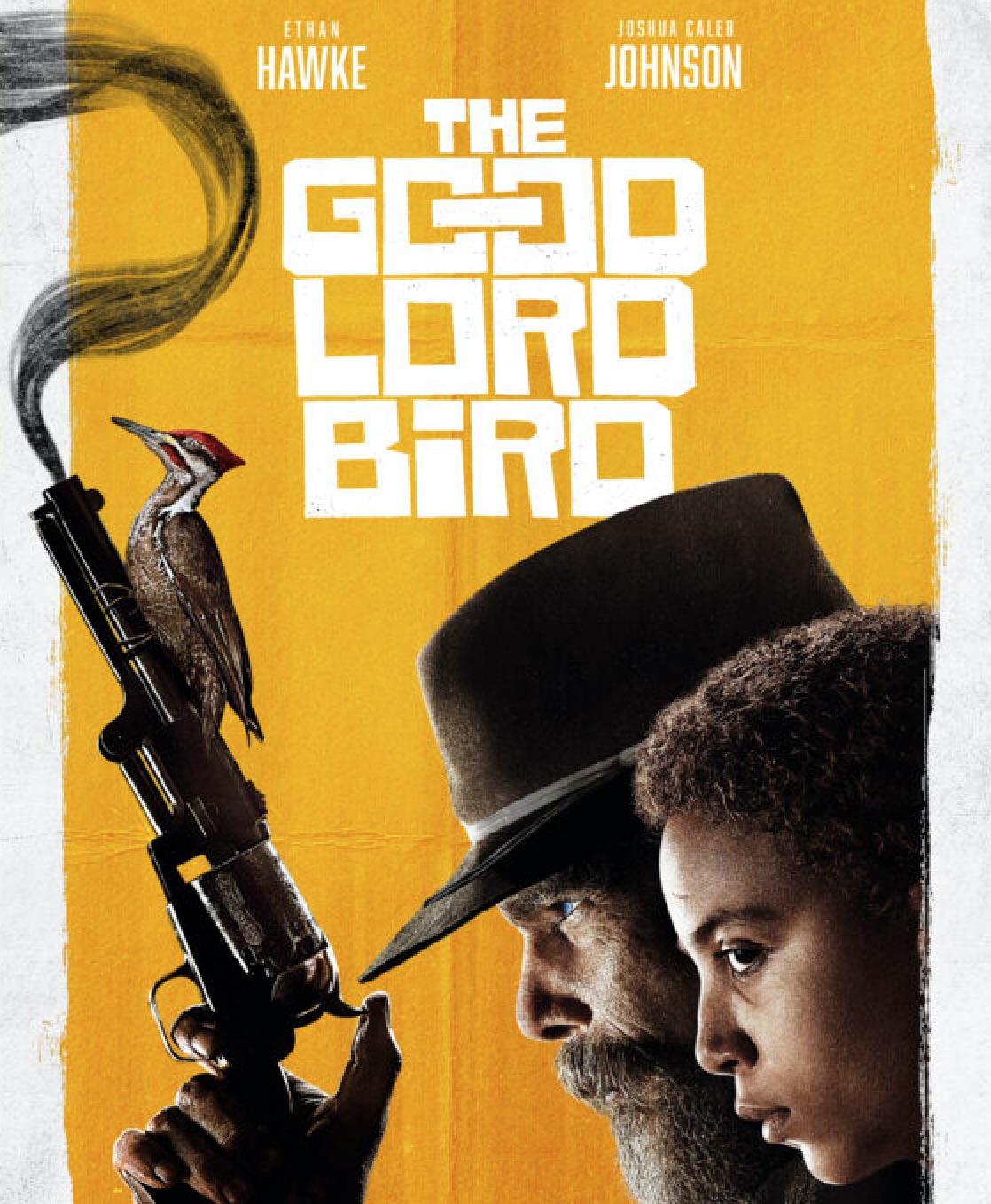
On October 4, 2020, The Good Lord Bird, a 7-part miniseries about the life of abolitionist John Brown—based on the award-winning novel of the same name by James McBride—premiered on Showtime. We enlisted historian Megan Kate Nelson to watch and review the series, episode by episode. We’ll publish her takes below, as each episode airs.
Episode Three: “Mr. Fred” (aired October 18, 2020)
The third episode opens with John Brown refusing to surrender himself to U.S. Army officer J.E.B. Stuart (Wyatt Russell), and then urging his gang to sign a declaration that they are “willing to die for the righteous.” God has given Brown a battle plan, he says, to light the fuse that will start a war to end slavery forever. “All will be revealed very soon,” he tells them. “First I need to go visit the King of the Negroes.” And so Brown and Onion board a train to New York to meet with Frederick Douglass (Daveed Diggs). The show’s depiction of Douglass is as irreverent as its depiction of Brown. In a series of speeches, Douglass delivers some of his most famous lines as Onion gapes in wonder—“I never knew a Negro could speak like that,” he says in a voiceover, “Or look like that. He was downright beautiful”—and Brown yells, “Here! Here!!” and “Amen!” Douglass’ audience members, most of them white, are as enthralled as Onion.
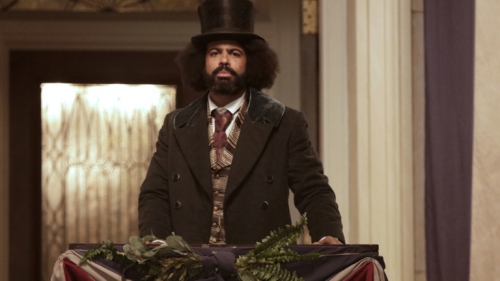
Daveed Diggs as Frederick Douglass in the third episode of “The Good Lord Bird”
Diggs, who is most famous for originating the roles of Marquis de Lafayette and Thomas Jefferson in Hamilton, plays Douglass as if he were on a Broadway stage: big gestures, exaggerated expressions, lots of shouting. His Douglass is larger-than-life, egotistical, and just a little bit ridiculous. He is also magnetic, a political leader who can transfix an audience with his eloquence and force of personality. Diggs and Hawke play off one another nicely in this episode, particularly during a dinner scene in which they argue about the best way to bring about the end of slavery in America. Douglass and his mistress, the German journalist Otillie Assing (Lex King), are scandalized and embarrassed by Brown’s uncouth manners and insistence that only violence will make change in the world. Douglass’ wife Anna (Tamberla Perry) and his friend, a formerly enslaved man who is referred to only as Emperor (Quentin Plair), are more sympathetic to Brown’s vision. Brown and Onion are there to ask Douglass to request funding from “The Secret Six,” a group of white abolitionists in New England. This is an anachronism, as this group was not known by that name at the time; but no matter.
Initially Douglass refuses, and Brown is crestfallen. “Have you lost faith in me?” he asks. “It’s not about faith,” Douglass responds. “It’s a question of method. If what you are proposing causes the nation to explode in bloody revolution, it will take even longer to reach true equality.”
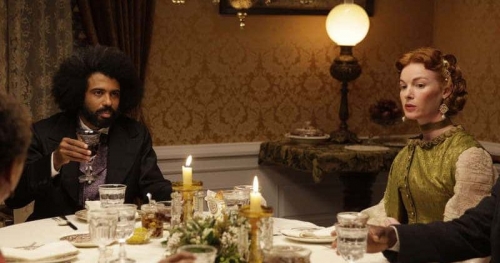
Frederick Douglass (Daveed Diggs) and German journalist Otillie Assing (Lex King) in a scene from “The Good Lord Bird”
The rest of the episode is much like a French farce, as Ethan Hawke described it in his interview with Manisha Sinha as part of the New Yorker Festival. Its comedic elements emerge from Douglass’ unusual domestic situation (James McBride described Douglass’ co-habitation with two women as “too delicious to pass up”). Each of his lovers comes and goes from the parlor, seeking to convince Douglass to reject Brown (Otillie) or embrace his cause (Anna) through a combination of reasoned argument and sexual manipulation. Onion stands by watching all of this, wide-eyed and drunk on cognac. In the end, Douglass ends up with his head in Onion’s lap, weeping. This is an entertaining episode, but one filled with dark omens.
In the first scenes, J.E.B. Stuart tells the Brown gang that he has “a strong intuition that the next time I see you, I’ll be looking over all your dead bodies.” On the train, Brown tells Onion he has a farm and Onion wonders if he is rich. “You know what I have in my pockets?” Brown responds. “Grief. That is my wealth.” He tells the story of falling in love with his first wife, and then burying her and nine of their children. “Can you imagine that much grief? I’m a rich man.” And in the dead of night at Douglass’ mansion, as Onion contemplates fleeing through the tunnel dug underneath the house, Emperor tells his own story of flight from slavery. “I saw everyone around me dying, or being sold off,” he says. “I guess I got to the point, where I figured if I was going to die, I wanted to meet death as a free man.” Onion chooses to stay with Brown instead of running to Canada, and they ride off in a carriage to the sound of a gospel version of “Amazing Grace,” a song about the spiritual redemption of an English slave trader. It is a well-known anthem of the Civil Rights Movement, and it is also played and sung, quite often, at funerals.
Megan Kate Nelson is a historian and writer. She is the author, most recently, of The Three-Cornered War: The Union, the Confederacy, and Native Peoples in the Fight for the West (Scribner, 2020).
Other articles in this series:
Review of Episode One: “Meet the Lord”
Review of Episode Two: “A Wicked Plot”
Review of Episode Four: “Smells Like Bear”
Review of Episode Five: “Hiving the Bees”
Review of Episode Six: “Jesus Is Walkin'”
Review of Episode Seven: “Last Words”
Related topics: African Americans, emancipation

